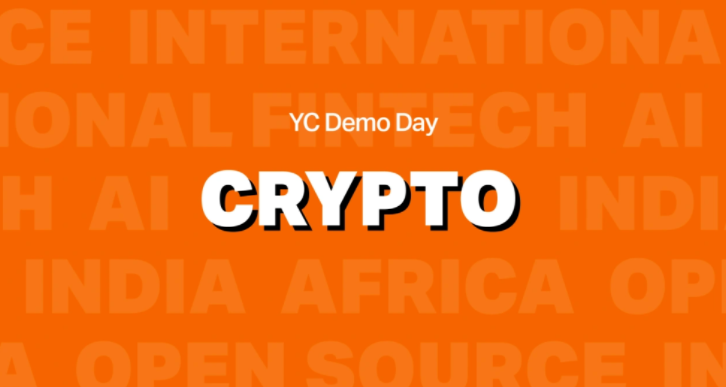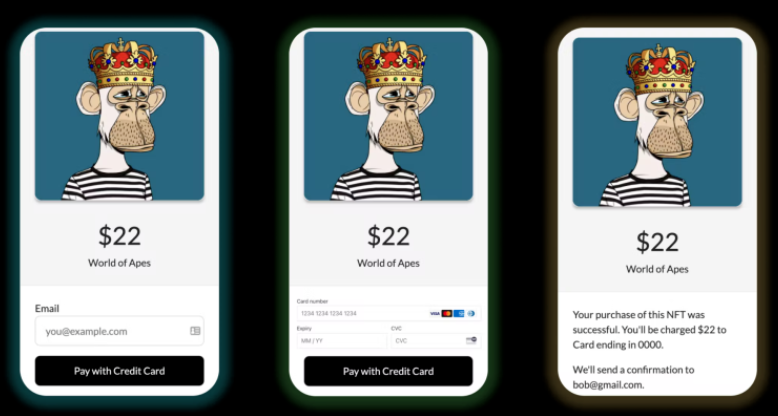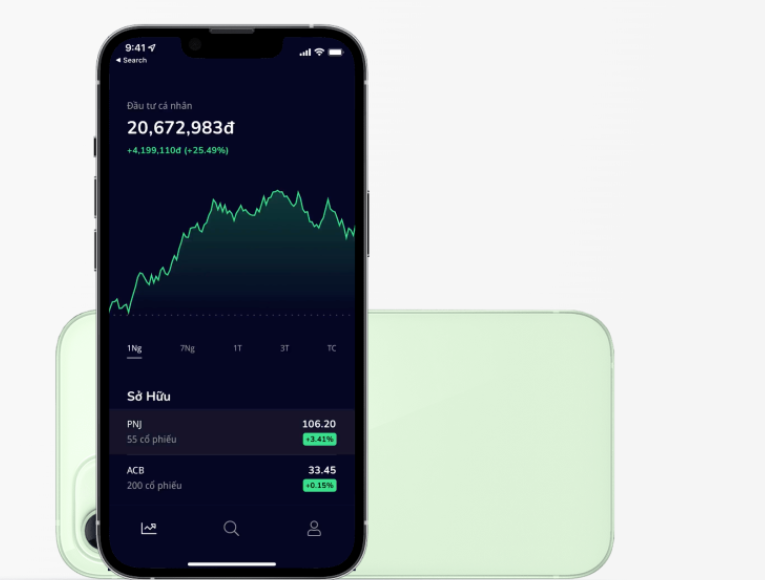Y Combinator, the first incubator in Silicon Valley, was also the cradle of WEB3 star companies, and Coinbase, OpenSea, etc. came out from here.
An interesting thing is that Harj Taggar, head of fintech and cryptocurrency at Y Combinator, recently told The Block that YC didn’t believe in Crypto when Coinbase was participating in the summer 2012 program.
Today, more and more crypto startups are appearing in YC's DEMO DAY. In the latest W22, 25 startups have joined them. This is collected from Techcrunch reporter Lucas Matney and shared with you.
SimpleHash
Project details: https://kingdata.com/dapp/691401?type=dashboard&lang=cn
Summary: "SimpleHash allows Web3 developers to query all NFT data from a single API. We index multiple blockchains, handle edge cases, provide a fast media CDN, and can be integrated in a few lines of code."
Founders: Alex Kilkka was previously co-founder of NFT social network Showtime and Olly Wilson was EIR at Portage Ventures.
Comment: The NFT market has made great strides on Ethereum, but it is known that any future mainstream NFT-related will rely on second-layer blockchains that reduce transaction costs. This creates opportunities for startups, but also presents them with cross-chain challenges, which SimpleHash is trying to simplify.
NFTScoring
Project details: https://kingdata.com/dapp/691433?type=dashboard&lang=cn
Introduction: "NFTScoring is where you discover, analyze, and trade NFTs. We give you the superpower to understand the NFT market, make the best decisions, and act faster at any given moment."
Founders: David Mokoš and Adam Zvada previously co-founded artificial intelligence lab Cognitic and hyperlocal delivery platform GoDeliver.
Comments: NFTScoring is trying to build a better homepage for NFT traders, which aims to explain some of the unique properties that make some NFTs more valuable than others, while helping users find trending items early. It is crucial to keep track of what NFT whales are buying by tracking the wallet network. The startup has premium pricing, and users need to pay in Eth.
Remi Labs
Project details https://kingdata.com/dapp/691499?type=dashboard&lang=cn
Introduction: "It may seem tempting for brands to launch a series of NFTs, however, if poorly executed, there may be long-term negative effects. We are taking it out of NFTs."
Founders: Podium. Brant Choate and Dan Conger both previously held senior roles at enterprise information startup Podium.
Comments: Basically, NFTs fly together and brands start thinking about how to get involved, and they see it as a pretty chaotic space full of skeptical consumers. Soon after, many white-label NFT services started, aiming to give them a better path to start NFT projects. Remi Labs is eyeing this opportunity and is focusing on the NFT series early on.
Poko
Introduction: "We're building Slack for Web3. Our goal is to replace LLCs with DAOs in cross-border collaboration in emerging markets. We'll take a multi-step, months-long approach to reducing company registration and setup fees to $50 per month , and easily open a Slack channel."
Founders: Van Tran has led Netflix's strategic execution in the SEA region, Geoffrey See is an executive at identity startup Trusting Social, and Sean Ang founded educational organization Success Alliance Enrichment.
Comments: DAOs are hot, but the tools behind them are still catching up with the hype. Poko tends to use DAOs as LCCs because of some legal ambiguity in the US, but less so in many other regions, including Singapore where the startup is based as far as I know.
GoSats
Description: "GoSats is a bitcoin rewards app. We help people accumulate free bitcoins as cashback and rewards when shopping in India."
Founders: Roshni Aslam was previously a research analyst at consulting firm ONEX AE, and Mohammed Roshan was the CTO of blockchain startup ThroughBit.
Comments: When it comes to credit card rewards, crypto credit card rewards are the old fashioned way. So far, however, the Indian government has taken a tough stance on crypto, but many entrepreneurs see the crypto market as a market with huge opportunities for the industry.
Cashmere
Project details: https://kingdata.com/dapp/691532?type=dashboard&lang=cn
Introduction: "Cashmere is a crypto wallet for Web3 startups to manage digital assets on Solana. Rather than using a personal wallet to run a business, startups can use our wallet to collaboratively manage their funds."
Founders: Shashank Khanna was previously a senior engineer at SoFi, Rebecca Lee was a deployment engineer at Retool, and Charlotte McGinn was a software engineer at Tesla.
Verdict: Consumer crypto wallets have been big business over the past year, but the technology has not been as active in helping startups, projects, and DAOs securely manage funds using enterprise-grade multi-signature wallets. Solana has attracted a lot of attention from developers over the past year. These developers aim to copy Ethereum's tools and improve them with Solana's strengths.
Chaingrep
Project details: https://kingdata.com/dapp/691565?type=dashboard&lang=cn
Introduction: “Chaingrep is a search engine for on-chain interactions and digital assets. You can think of it as a new kind of block explorer. We believe that current block explorers like Etherscan are too complex to Not available to regular users. By extracting many of their features and filtering out all the noise, we can greatly improve the experience of finding on-chain information.”
Founder: Rosco Kalis was previously an engineer at crypto startup Truffle, and Merwane Drai has no LinkedIn profile but shows he's working on cracking the Matrix.
Comments: The transparency of my blockchain is comparable to platforms where data interpretation is simple and easy to read. This will become even more important as more non-technical users enter the Web3 platform.
winter
Introduction: "Winter provides an embeddable widget that helps your consumers buy NFTs with a credit card or bank account! If users don't have a wallet, we also help them keep and manage NFTs."
Founders: MichaelLuo was previously a product manager at Facebook and LailaChima was a software engineer at Stripe.
Comments: For any user who has gone through the NFT buying process, purchasing crypto software on a centralized exchange platform, creating a wallet and transferring the crypto software to the wallet for purchase are the most time-consuming parts. This is why startups are trying to eliminate this by buying credit cards, which may appeal to Web2 platforms trying to find opportunities in NFTs.
Decent
Introduction: "Delegate enables musicians to monetize their work directly through fans, aligning artist and fan incentives with funding, intellectual property protection and discovery. We do this through markets and infrastructure that enable Musicians can issue NFTs backed by royalties.”
Founders: Will Collier was an analyst at Accenture, Charlie Durbin was an analyst at Vox Media, Will Kantaros studied applied mathematics and economics at Brown, and Alexander Carlson was a music producer.
Comment: In the art world, NFTs are largely well developed, but there are still some startups that have been trying to find opportunities in other areas like music media. The sale of Delegate appears to be creating an NFT incentive structure for new fans to build word of mouth around the musician that is more closely tied to the success of the song itself over time.
Yatima
Introduction: "Yatima is an underlying blockchain that radically improves the security and scalability of smart contracts and other deterministic computing by using on-chain formal verification and zero-knowledge proofs."
Founders: John Burnham formerly CEO of Sunshine Control Netics, Samuel Burnham recently obtained a degree in Computer Science from Rensselaer Polytechnic Institute, Gabriel Aquino Barreto formerly Ethereum software developer.
Comments: This is one of the more tech-heavy startups to go public so far, and I'm clueless about some of the details, but Yatima is building a cryptographic programming language around emerging technologies like zero-knowledge proofs. This technique uses complex mathematics to cryptographically verify batches of transactions, and is often seen as a key element of the more scalable, trustless blockchains of the future.
CypherD Wallet
Project details: https://kingdata.com/dapp/692225?type=dashboard&lang=cn
Introduction: "Existing crypto wallets are too outdated for mainstream users. We are building a multi-chain crypto wallet that, together with crypto cards, simplifies the user experience for mainstream users."
Founders: Kuberan Marimuthu was previously a senior engineering manager at Coinbase, Muthukrishnan Ramabadran was a senior software engineer at Lyft, and Dheeban S.G. was a senior engineer at blockchain startup Magic.
Comments: There are still some major unknowns about the future of consumer Web3, but most investors believe that wallet applications will play a considerable role in the future, and users need to have a central place to store their coins and NFTs. CypherD is also looking for a way to make the wallet a storage center for US dollar assets, that is, to provide users with a MasterCard debit card, and users can convert cryptocurrencies into US dollars in the wallet and use them.
Courtyard
Project details: https://kingdata.com/nft/666520?type=dashboard&lang=cn
Introduction: "Courtyard stores physical collectibles (trading cards, sneakers, watches, etc.) in secure vaults, creates 3D representations of assets and builds them as NFTs on the blockchain. We have partnered with the world's largest security One of the companies has partnered to store the collectibles.”
Founders:Paulin Andurand was a senior software engineer at Apple, Nicolas le Jeune was a YouTube manager.
Comments: NFTs have done a great job of creating a liquid market for digital assets, however, there has been talk of how they can be used to simplify the trading of physical collectibles. Vertically specific markets have had some success in this regard, although legal challenges remain with the sale of digital assets based on the similarity of physical products as tokens.
Payourse
Introduction: "We've built the tools and infrastructure to make encryption and Web3 easy, fast, and cheap for anyone in Africa to access."
Founders:Bashir Aminu formerly Head of Africa P2P at Binance, Hakeem Adeyemi Orewole formerly Software Engineer at Andela, John Anisere formerly Senior Software Engineer at Intersection Ventures.
Comments:: Crypto advocates are quick to highlight how blockchain-based payments can work wonders for non-bank users in developing countries, but it seems that little valuable VC money is going into teams aiming to make it happen .
Argo
Project details: https://kingdata.com/dapp/639741?type=dashboard&lang=cn
Description: "Argo's mission is to empower film and TV producers around the world. It's the easiest way to upload your content and monetize it. Argo provides the technology and ecosystem for filmmakers to monetize their films through advertising, subscriptions and NFT sales and monetizing TV productions.”
Founder: Arcadiy Golubovich formerly headed the entertainment production company Primeridian.
Comments: Argo appears to be the first media startup to focus on short-form video, providing a platform for filmmakers to showcase their work, while also using NFT sales to help them monetize and build popularity.
Finnt
Project details: https://kingdata.com/dapp/692489?type=dashboard&lang=cn
Description: "Finnt is the first DeFi app for families. We offer multi-user, high-yield savings accounts that make it easy for your kids or family members to save in crypto."
Founder: Anji Ismail used to lead product launches. Faozi El Yagoubi was the engineering director of Ovavi
Comments: DeFi for Homes is a very specific pitch that started out primarily focused on allowing users to link sub-accounts to a central investment account. The high-profile exploitation of DeFi protocols will undoubtedly make some households skeptical about putting their assets here, but higher returns may make some households willing to take risks.
Tradezi
Introduction: "Tradezi is the Robinhood of Southeast Asia. Our goal is to help everyone invest in stocks, crypto and other alternative assets in one place."
Founders: Phi Dang and Jasmine Huynh were both previously senior software engineers at Google.
Comments: Robinhood has apparently done a lot of work to educate U.S. retailers about crypto, like showing cryptocurrencies next to publicly traded stocks. This appears to be a model that Tradezi is interested in SEA.
Botin
Introduction: "Botin is a mobile app where people in Latin America can invest in U.S. stocks, crypto, and more."
Founders: Robert Baron was a former BitGo developer and James Jara was a former software engineer at Avantica.
Comments: The Costa Rica startup is also promoting Robinhood's stock and crypto technology to Latin American users, and hopes to find a wider audience for retail trading.
earnJarvis
Project details: https://kingdata.com/dapp/692490?type=dashboard&lang=cn
Introduction: "earnJARVIS is a crypto investment platform that helps retail investors and businesses make smart investments in the crypto economy."
Founders: Atyab Bhatti was a former manager at McKinsey and Kush Maheshwari was a former software engineer at Rubrik.
Comment: Robo-advisors have always been big business for entry-level retail investors, but crypto trading is largely a DIY business at the same level. It is likely that a fleet of such platforms will emerge that promises to automate the process of diversifying crypto assets while exposing users to elements of the DeFi world.
Magna
Introduction: “We bring universally needed tools to crypto companies to help them manage token distribution, token holder entry/exit, and other critical tools.”
Founders: Bruno Faviero was previously a product manager at Palantir and Arun Kirubarajan was a graduate researcher at the University of Pennsylvania.
Comment: In an age where crypto startups grant equity and tokens to investors and employees at the same time, Cap tables have become very complicated. The company, called Magna, hopes to bring some much-needed simplification to the management of token compensation with Carta rethinking the way Web2 startups manage their Cap tables.
Soon
Project details: https://kingdata.com/dapp/692522?type=dashboard&lang=cn
Introduction: "With Soon, you can invest without speculative pressure. Our fully automated scanning account connects to your bank and displays market transactions with daily spending activity. By investing according to plan and selling available earnings as you spend , Soon can automate investing from start to finish.”
Founders: Chris Lovato was a DevOps engineer at Adobe, Aaron Bylund led Nu Skin's corporate strategy implementation, and Michael Shattuck was a senior software engineer at Pluralsight.
Comments: While users can gain exposure to new asset classes through new platforms, this does not mean that consumers want to be part-time investors. Through the platform established by Soon, the idle funds in user accounts can be automatically invested through encryption or traditional asset methods.
LiquiFi
Introduction: “LiquiFi (“Crypto Carta”) helps companies and DAOs automate token attribution, management and distribution to employees, investors, partners and community members. Secure, audited smart contracts ensure timely distribution of attribution tokens coins and save a lot of time and resources for building your own solutions.”
Founders: Robin Ji was previously the product lead at Eco, and Oliver Tang was the engineering manager at Amazon.
Comments: Not surprisingly, YC is backing a pair of startups that are seizing the same opportunity. Token management is clearly a pain point in the growth of Web3 startups, yet YC has been particularly successful in helping to scale startup-to-startup offerings.
Arda
Introduction: "Fintechs embed a single API for DeFi products on their platforms. This allows them to acquire more customers, retain those customers, and increase revenue and engagement. All in a secure, compliant manner carried out in a way.”
Founders: Pranay Shetty was an early employee of CloudKitchens and Ramkumar Venkataraman was a founding engineer at Moneyworld.
Comment: Although trading stocks and cryptocurrencies in one application has become an expected function of traditional trading applications, this relationship has not yet been integrated in DeFi and traditional fintech services, which still live in different applications and platforms.
OnScale
Description: "OnScale is a commercial bank for high-income creators that automates revenue budgeting, cash flow management, tax write-offs and invoicing. We help creators save money and time by automating their finances ."
Founders: Tonjé Bakang Tonje is the founder of Afrostream, Germany Saprykin is the Senior Engineering Manager of Grab.
Comments: While many creator-centric Web3 products specifically target NFT creators, OnScale wants to help a wider range of creators access traditional financial products, while building a crypto track that helps users easily convert revenue to cryptocurrency.
Blocknom
Introduction: “We provide consumers and businesses with safe and convenient crypto investments through DeFi yields. Our product is very simple. People can deposit and withdraw quickly with the click of an option. Once they deposit, they don’t have any hidden fees. , you may get competitive interest. Interest comes from DeFi protocols.”
Founders: Fransiskus Raymond is the sales manager of Gojek, Ghuniyu Fattah Rozaq is the developer of Ritase
Comments: Much has been said about DeFi-Yield Farming, which provides a high percentage of funds deposited into investment pools. Sometimes these too-too-good-to-be-true rates turn out to be true, but other times they highlight just how much of a benefit there is when users take the investment/saving process out of the bank (and its associated protections).
Bloom
Introduction: "Bloom provides U.S. dollar banking to students and young professionals in East Africa. By saving in U.S. dollars or digital dollars, and spending in their local currency, they will be immune to inflation."
Founder: Ahmed Ismail worked at Barclays. Khalid Keenang is an engineer at Finbourne. Youcef Oudjidane is a managing partner at Class 5 Global and Abdigani Diriye is a research manager at Amazon.
Comment: In Sudan, there are many currencies with hyperinflation, and this Sudanese startup hopes to use stablecoins to help young professionals in East Africa avoid these problems. There is clearly a huge opportunity here to help users in developing countries build wealth, but because of the risks associated with crypto, these opportunities also mean a lot of responsibility for these startups.
Click for detailed list: https://kingdata.com/subject/detail?id=595&lang=cn
Welcome to the official KingData Chinese community: https://t.me/KingDataCN
Get more KingData product information and activities, communicate with the big guys in the group, and capture the wealth password.





